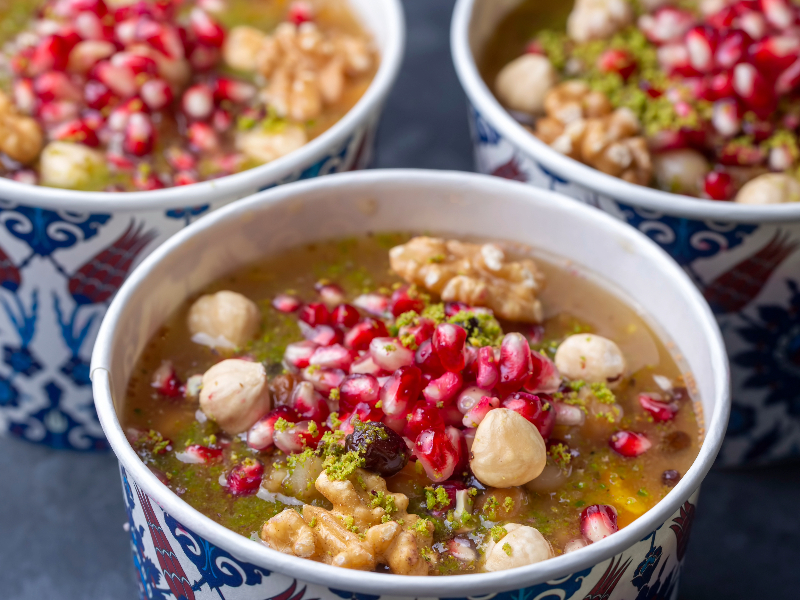he Islamic tradition of Ashoura is celebrated on the tenth day of the Islamic month of Muharram. According to Islamic tradition, it was on that day that Moses and his people escaped from the Egyptian Pharoah. They celebrated the exodus by fasting. Many Muslims around the world also commemorate that victory by fasting. Institute for Social Policy and Understanding Fellow Haroon Moghul writes that, “While the Islamic tradition teaches the Exodus occurred on Yom Kippur (in Judaism, the day of atonement), Jews actually commemorate the Hebrews’ escape from Egypt on Passover.” The occasion, though marked on different dates, demonstrates the shared Abrahamic lineage of Islam and Judaism.
For Shia Muslims, Ashura is also a day of mourning, because the Prophet’s grandson, Hussein ibn Ali was killed on the 10th of Muharram 61 AH (680 CE). Shia Muslims traditionally revere the Prophet’s family and descendants.
In fact, the genesis of the split between Sunni and Shia Muslims was a disagreement of the role the Prophet’s family should play in the Muslim community. After the Prophet’s death, his companions disagreed on who should succeed him as leader of the community. One major party thought that the leader should be chosen by consensus while the other – the forerunners of Shia Muslims – believed that his cousin and son-in-law, Ali, should succeed him. The former party won out and the Prophet’s friend and father-in-law, Abu Bakr, was chosen to be his successor. Ali eventually became the fourth caliph.
Ali’s reign was marked by civil war with Mu’awiya. After Ali was assassinated, Mu’awiya signed a peace treaty with Ali’s older son, Hasan, that consolidated Mu’awiya’s power and marked the start of the Umayyad caliph. Mu’awiya passed on the caliphate to his son, Yazid I, defying the process of succession laid out in the treaty. The conflict that was sparked by Yazid’s rise to power culminated in the killing of Hussein, his supporters, and many of his family members on Ashura. They are considered martyrs by the majority of both Sunni and Shia Muslims.
Source: What is Ashura?
Additional Reading – Connections between Cultures:
A Traditional Muslim Wheat Pudding, Just in Time for Passover
Although Ashura is a time of mourning for Shia Muslims, for many Sunni Muslims, it is a time of celebration because of the day’s association with Moses’ escape. As such, in many Sunni Muslim countries, the devout will consume sweets after breaking their fasts at sunset. In particular, the rich dessert known as Noah’s pudding is a common favorite. This article provides a description of the dessert as an entryway to discussing connections between Ashura and the Jewish Passover.
Why these Hindus celebrate the Muslim festival of Moharram
This article, which discusses Hindus who celebrate the Muslim holiday of Ashura, could lead to an interesting classroom discussion about how blurry seemingly clear ethnic and religious lines can be. Narratives of sectarian violence in the Middle East and South Asia are never as simple as they appear from the outside.


